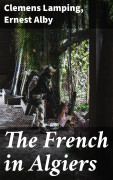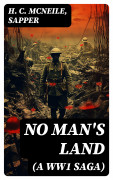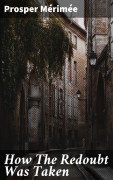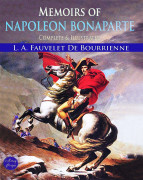Clemens Lamping, Ernest Alby: The French in Algiers
The Soldier of the Foreign Legion; and The Prisoners of Abd-el-Kader

| Produkttyp: | eBook-Download |
|---|---|
| Verlag: | DigiCat |
| Erschienen: | |
| Sprache: | Englisch |
| Seiten: | 160 (Druckfassung) |
| Format: | EPUB
Info▼
|
| Download: | 657 kB |
In 'The French in Algiers,' Clemens Lamping and Ernest Alby provide a compelling anthology that serves not only as a historical document but also as a literary exploration of French colonialism in Algeria. The collection deftly navigates the complex interplay between occupier and occupied, blending eyewitness accounts, letters, and journalistic pieces to create a multifaceted portrayal of colonial life. The diversity of styles - from the lyrical to the expository - enriches the anthology, providing readers with a comprehensive understanding of the era's socio-political dynamics. Through its careful selection of pieces, the anthology invites contemplation on the nature of power, resistance, and cultural exchange, marking a significant contribution to colonial studies. The backgrounds of Clemens Lamping and Ernest Alby as editors are crucial in shaping the anthology's perspective. Their scholarly and experiential insights into French-Algerian relations during the colonial period add depth to the collection, aligning it with broader historical and cultural movements. By drawing from a variety of sources, they ensure a plurality of voices, enriching the reader's comprehension of the challenges and intricacies of French colonial rule in Algeria. 'The French in Algiers' offers an invaluable resource for those interested in colonial history, literary studies, and cultural analysis. It represents an exceptional opportunity to engage with the nuanced realities of French colonial life in Algeria, providing a rich tapestry of perspectives that illuminate the complexities of historical narratives. Readers seeking to deepen their understanding of colonial dynamics and the power of literary expression in shaping historical discourse will find this anthology a rewarding and enlightening read.











